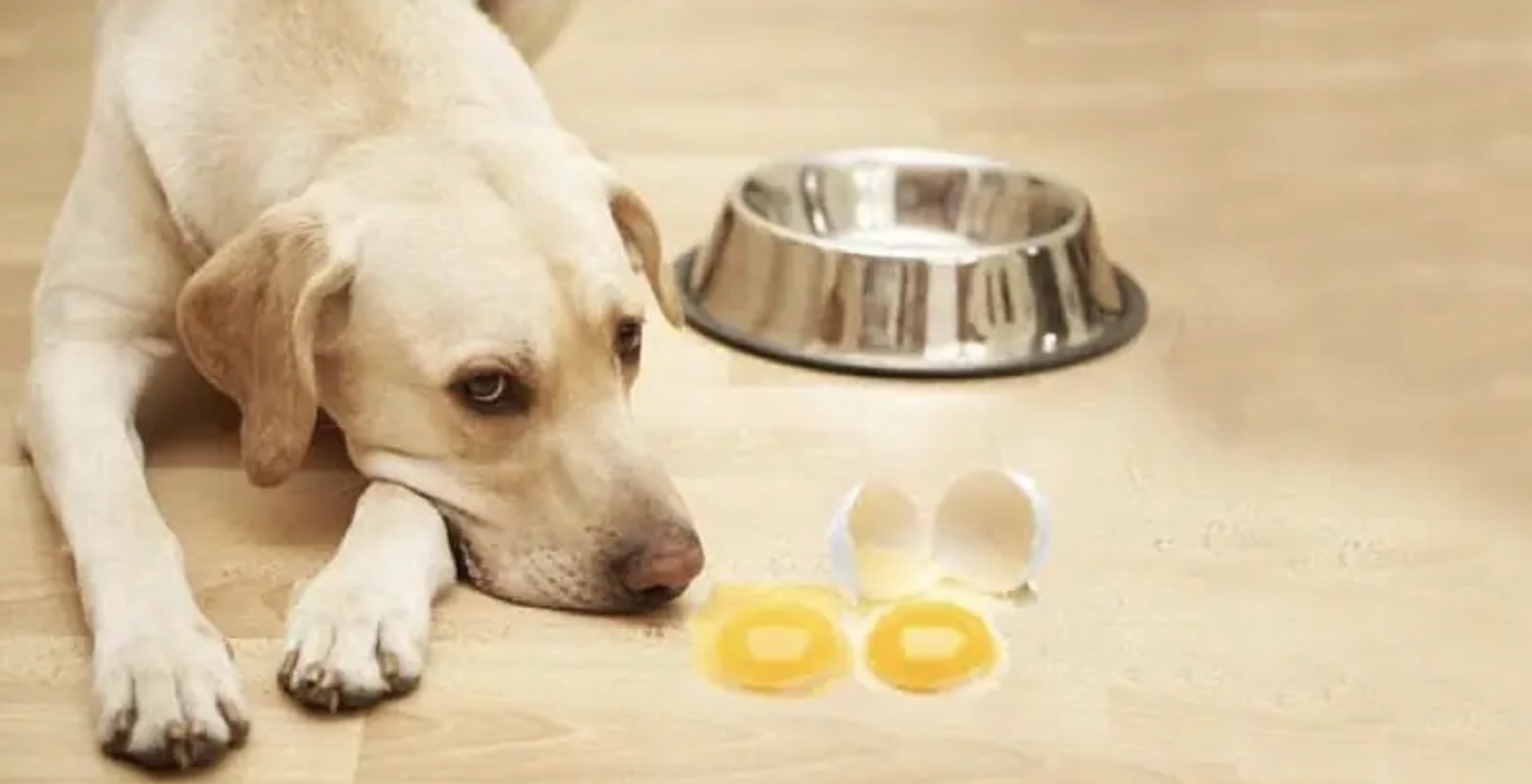Can dogs eat that? We ask this question on a regular basis. Tuna, apples, pumpkin seeds, yogurt, eggs, and many other foods we consume on a daily basis. The truth is, some of the human foods are completely safe for your dog.
So, with that in mind, can dogs eat eggs?
In order to be a responsible and informed dog lover, you are asking the question about people food. But you should not worry, eggs are completely safe for your dog. Let us answer some questions and dilemmas you have about eggs.
Why are eggs great?
Let’s start with the obvious answer, eggs are a great source of nutrients. Rich in protein and many essential amino acids fatty acids, and minerals and vitamins, eggs can give your dog a protein boost. Think of eggs as a healthy treat.
In addition, eggs can help dogs with digestive problems. If your dog is prone to digestive upset, eggs will settle the upset stomach.
You should talk to your veterinarian how many eggs you should give your dog. While they are generally safe, overfeeding can result in obesity and other health problems.
Here is a quick breakdown of all the vitamins and minerals your dog gets from an egg:
- Vitamin A
- Vitamin B12
- Folate
- Riboflavin
- Iron
- Selenium
- Fatty acids
Should you feed your dog raw or cooked eggs?
This is one of the biggest two-sided stories. Some veterinarians and dog nutritionist say dogs should eat only cooked eggs. Others say there is nothing wrong in feeding your dog raw eggs.
The concerns regarding raw eggs are the following:
- Raw eggs can increase the risk of dogs catching salmonella, same as humans are exposed to the bacteria when eating raw eggs
- Raw eggs can lead to biotin deficiency, as raw eggs contain enzymes that can inhibit biotin and prevent its absorption into the body
Now, while these side effects are rare, veterinarians still suggest cooking eggs before feeding to your dog. Cooked eggs are a great treat for training classes.
What about egg shells?
This is another question that can be troublesome to answer. But the simple answer is that egg shells are safe as long as they are grinded.
Egg shells are highly nutritious, as they contain calcium and phosphorus.
The problem is that when given whole, they can cause problems in your dog’s stomach. Being that they sharp, egg shells can cause internal bleeding.
How to feed your dog egg shells?
Dry them, and then grind them in a clean coffee grinder. Once they are powdered, you can sprinkle the powder on your dog’s food as a supplement.
Simply put, there are not many other cheap ways you can add so many minerals and vitamins to your dog’s diet.
Some myths debunked
We talked about the dangers of feeding your dog raw eggs. And while the concerns are legit, we want to give you the other side of the story. Or in other words, try to debunk some of the myths.
Yes, egg whites can cause biotin deficiency when given raw eggs. Egg whites contain avidin, which is a Biotin (B vitamin) inhibitor.
Biotin is one of the most important B Vitamins, responsible for cellular growth, good skin, good coat, and fatty acid metabolism.
However, this problem is easily solved when you feed your dog whole eggs.
The reason?
Egg yolk is very high in biotin, so as long as you give your dog whole eggs, you do not have to worry about biotin deficiency.
Another good source of biotin is the liver.
The salmonella problem is another myth that can be debunked. While raw eggs pose the risk of salmonella, you need to understand that your dog’s stomach works in a different way than our stomach.
Or in other words, your dog is much better equipped to handle a salmonella problem.
Cooking the eggs will eliminate the problems of salmonella and biotin deficiency. However, in the same time, cooking will cause eggs to lose much of their nutritional value.
What about cholesterol?
Many dog owners worry about cholesterol levels in an egg. We know that more than one or two eggs per day in humans can cause high cholesterol. But while dogs and humans are alike in many ways, they are different in some as well.
Cholesterol doesn’t have the same effect on dogs as it does in humans. Dogs do not get the same cholesterol-related problems as humans. That means you can feed dogs full egg, not just the egg whites, as many humans do for themselves.
Can dogs eat an egg per day?
Now that we answered the questions can dogs eat eggs, another question is how many eggs they should eat. One egg per day? One egg per week? Or something in between.
While dogs can eat a little bit of egg each day, the important thing to understand is the nature of feeding your dog with eggs. Feed your dog eggs like you would any treat. Being that eggs are about 70 calories each, how much of them you feed depends on your dog’s size.
Remember, you want to stick to the 10% treat rule. That means eggs should be just 10% of your dog’s daily total calories consumed. This way, your dog is getting complete and balanced meals without any extra calories.
Most importantly, eggs will be treats your dog will be excited to wait for after the regular meal.

